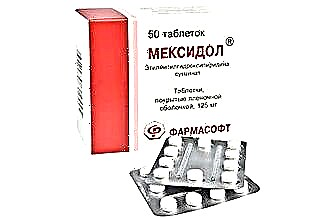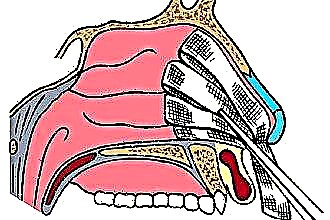The period of breastfeeding is a special time in the life of a mother and child. Breastfeeding involves close contact - while the newborn receives nutrients, without which its growth and development is impossible. Breast milk is the best nutrient medium for young babies, so breastfeeding is strongly encouraged. In maternity hospitals, children's clinics and children's hospital departments, it is not uncommon to find posters and brochures that describe the benefits of breast milk. However, along with the necessary components, unwanted ones can enter the child's body - for example, when taking certain medications. Therefore, breastfeeding throat treatment must be carried out consciously and correctly.
Fundamental rules
 A sore throat can often be attributed to either a viral or bacterial infection. Although there are many reasons for the appearance of this symptom, the named ones are usually found. It does not matter whether the patient is breastfeeding - the principles of treatment of inflammatory diseases of the oropharynx and tonsils are determined by the type of disease. There are general rules, the observance of which is necessary for any variant of throat diseases of a viral and bacterial nature:
A sore throat can often be attributed to either a viral or bacterial infection. Although there are many reasons for the appearance of this symptom, the named ones are usually found. It does not matter whether the patient is breastfeeding - the principles of treatment of inflammatory diseases of the oropharynx and tonsils are determined by the type of disease. There are general rules, the observance of which is necessary for any variant of throat diseases of a viral and bacterial nature:
- Adequate amount of fluid you drink.
- Air humidification (50–70%).
- Room temperature control (19–20 ° C).
- Regular ventilation of the room.
- Moisturizing the mucous membranes with saline (saline drops, rinsing the nose, gargling).
At high temperatures, bed rest is indicated. The usual idea of treating a disease with pills cannot be called fundamentally wrong, but in many cases they can be limited to a minimum - and without much difficulty. In addition, a nursing mother is unlikely to have a desire to take medications in handfuls - it is not known how this will affect the health of the child.
When breastfeeding, treatment should be aimed not only at achieving the woman's recovery, but also at preventing harm to the child's body.
So how does drinking plenty of water and moist air relate to the throat? In case of infectious and inflammatory diseases, there is a lot of mucus on the surface of the mucous membranes - this is natural and natural. If the infection is triggered by a respiratory virus, mucus is also found in a large volume in the nasal cavity, from where it flows down the throat. If it dries up, it becomes much easier for pathogenic agents (bacteria, viruses) to multiply. The activity of local immunity decreases - and hence the body's resistance. It is much more difficult for the pathogen to "gain a foothold" on a moist mucous membrane.
In addition, when the mucous membranes dry out, pain is more pronounced. The pain relievers found in many pills and sprays are really helpful for intense pain. But in many cases, the elimination of dryness of the mucous membranes greatly facilitates the patient's condition - and she does not have to fear the effect of the medicine on the child's body.
Local treatment
 Any infectious and inflammatory disease is much easier to treat if you can act directly on the affected area. Clean and cool air is important when the pharynx or larynx is involved, but topical therapies will also be helpful. These include:
Any infectious and inflammatory disease is much easier to treat if you can act directly on the affected area. Clean and cool air is important when the pharynx or larynx is involved, but topical therapies will also be helpful. These include:
- tablets and lozenges for sucking;
- throat sprays;
- rinsing solutions.
When breastfeeding (breastfeeding), it is important to choose a medication that is suitable for the woman and does not affect the baby. However, manufacturers often indicate in the instructions that there is not enough research data to confirm or deny the ability of the drug to pass into breast milk. The selection criterion is a statistical assessment of the incidence of adverse effects after administration. What drugs can be used during lactation?
| Action type | Drug name | Indications | Features of some drugs |
| Anti-inflammatory | Tantum Verde, Aqualor throat | Viral and bacterial pharyngitis, tonsillitis - acute, chronic | Tantum Verde has, in addition to anti-inflammatory, also anesthetic (analgesic) effect. |
| Antimicrobial | Sebidin, Faringosept, Lizobact | Bacterial oropharyngeal infections | Lizobact enhances the effect of antibiotics - in particular, penicillins. |
| Pain reliever | Strepsils Plus | Inflammatory diseases of the throat with pain syndrome. | The components of the drug are not excreted in breast milk. |
Means for local therapy should be used after a meal and not eaten from the moment of use for at least half an hour.
It is possible to treat the throat of a nursing mother with any medications, including the drugs indicated in the table, only after the permission of the doctor. Many women have chronic illnesses that can be considered contraindications even when lactation is not.
In case of unwillingness to use tablets and sprays, sore throat during lactation is treated with rinsing procedures. It is permissible to combine tablets and rinses in the therapy regimen. The rinse solution should not contain iodine. It is allowed to combine salt and soda at the same time or use the named components separately.
Home remedies
When a sore throat is worried about breastfeeding, home treatment is usually the first place to start helping a woman. However, it is worth remembering that home remedies can cause allergies and, if used incorrectly, can be harmful. Steam inhalation can cause burns to the mucous membrane, is prohibited during fever, and dipping your feet in hot water does nothing to relieve sore throat symptoms.
The most popular and safe way to heal your throat is the previously mentioned saline or soda solution. It must be used warm, cook each time before rinsing, dissolving a teaspoon of soda and / or salt in boiled water (glass).
It is also recommended:
- arrange pieces of onion and / or garlic in the rooms;
- use essential oils (tea tree, eqalipta).
Onions and garlic release phytoncides that act on disease-causing agents. Essential oils (for example, for aroma lamps) can also fight bacteria and viruses. Of course, they do not have a direct effect on a sore throat. These funds can only be used in addition to the main treatment in the absence of allergies.
Bacterial infection
 Mothers who breastfeed, like ordinary women, can tolerate sore throat - inflammation of the tonsils (often palatine), provoked by streptococcus. Treatment of this disease is unthinkable without antibiotic therapy. However, it should be started only with confidence in the diagnosis. The doctor can confirm the presence of streptococcal sore throat during an internal examination of the patient.
Mothers who breastfeed, like ordinary women, can tolerate sore throat - inflammation of the tonsils (often palatine), provoked by streptococcus. Treatment of this disease is unthinkable without antibiotic therapy. However, it should be started only with confidence in the diagnosis. The doctor can confirm the presence of streptococcal sore throat during an internal examination of the patient.
During lactation, not all antibacterial drugs are contraindicated. Many of them are compatible with breastfeeding - taking such medications is not a justification for stopping it. Among the approved antibiotics:
- Penicillins.
- Cephalosporins.
Representatives of the penicillin group (Ampicillin, Amoxicillin) are used with caution, as they can cause allergic reactions. At the same time, breastfeeding women should not take Ampiox and drugs that include, in addition to Ampicillin, also Sulbactam.Cefepime and Ceftriaxone, which belong to the group of cephalosporins, also require caution during use.
Not all antibiotics allowed for pregnant women can be taken during lactation.
Antibiotics are not drugs that can be used while breastfeeding alone. They are selected by the doctor strictly individually. The same patient in similar situations, but at different times, may be prescribed different medications.
To treat throat while breastfeeding, local antimicrobial agents from the list of approved throat gargles are used. It is important to follow the basic rules of therapy (monitor humidity, amount of drinking, etc.). Antibacterial drugs of any group should be recommended by a doctor who, during repeated consultations, assesses the dynamics of changes, adjusts therapy, and monitors the condition of the woman and the child.



